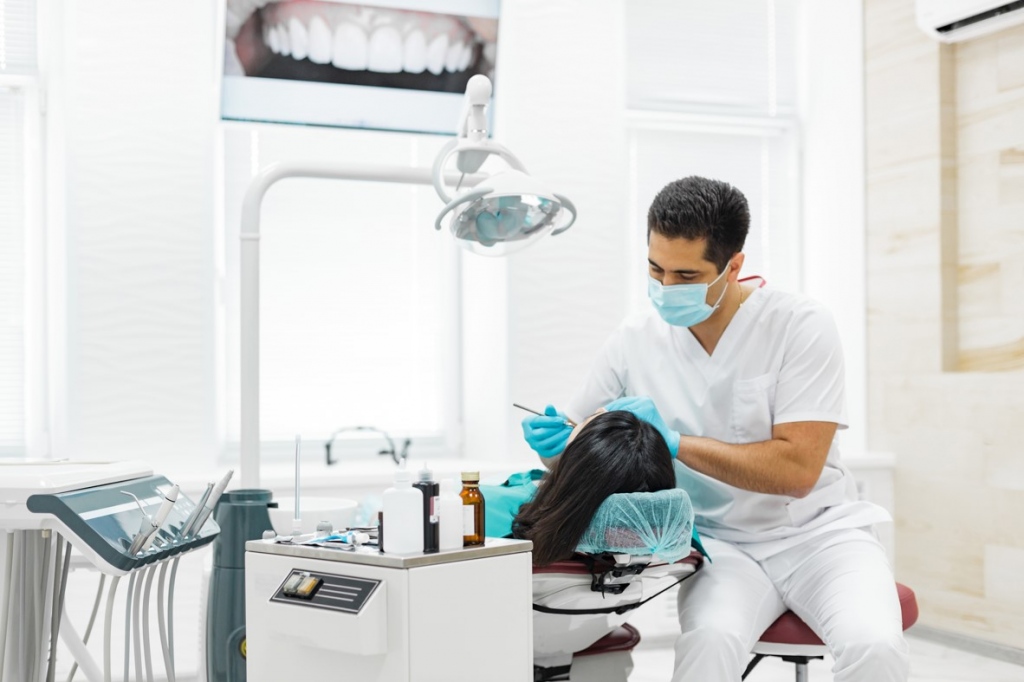If you are like many people, you may have a fear of going to the dentist. Whether you had an unpleasant experience as a child or simply can’t stand the thought of being in pain, you may put off not only routine procedures but also ones that may be urgent, such as tooth extractions. However, with most dentists offering sedation services to patients, your visit can be much more pleasant. As to when you should consider sedation, here are some of the most common reasons.
Controlling Anxiety
When your anxiety is such that it may cause you to have a panic attack during your dental procedure, sedation can solve the problem. By letting yourself be sedated during your procedure, you not only control your anxiety but also lessen the risk of your treatment being compromised. In addition to panic attacks, the stress and anxiety leading up to the procedure can decrease as well if you know that you will be sedated and thus can consider it an expensive nap instead of a stressful situation. Depending on what causes your anxiety, however, sedation may not be the best option. If you get anxious about people hovering over your mouth with drills and tools that cause you pain, then sedation may be a great option. However, if your anxiety is related to not knowing what is going on or being concerned that they’ll do something you don’t want them to, then sedation can cause additional anxiety and stress leading up to the procedure.
Pain Suppression
No matter what type of dental procedure you are having done, chances are there will be some levels of pain. If this is what’s been holding you back from getting the dental work you need, an IV sedation dentist could be a game-changer. Minimizing your pain during an extraction, tooth filling, or other procedure, will make it easier for your dentist to complete the task at hand. This is more common with procedures such as root canals where they will be drilling into your jaw bone, however, depending on how sensitive your nerves are, it may be ideal for more simple procedures as well.
No Memory of the Procedure
If you want to have little to no memory of what happened during your visit to the dentist, sedation can be used to induce amnesia in patients who have severe anxiety or very unpleasant memories about past dental visits. Known as anterograde amnesia, your dentist can employ a twilight anesthesia technique. When this is used, a small amount of general anesthesia is applied to prevent the forming of fresh memories during the dental procedure, eliminating the chances of traumatic memories that may linger. Before going with any dentist that provides sedation, consider reaching out to them to see if they have this type of anesthesia available. It may also be worth asking about other things to consider before using this anesthesia such as age and how long it lasts if you have to go to work directly after the procedure and need to have a sharp mind.
Multiple Procedures
If you will need multiple procedures done while at the dentist, sedation is almost always recommended. Between the pain and fatigue that can occur when multiple procedures are performed, sedation can not only help with pain management and anxiety control but also allow you to get as much as possible done in one visit. Sometimes dentists will only recommend doing so many procedures in one sitting due to the time it takes to recover from each thing, so also consider that when talking to your dentist. That being said, many procedures have the same recovery time or may have the same effects on your ability to eat so getting them done all at the same time can be beneficial so you don’t have to go through the recovery process twice. Not to mention the cost of doing it all at the same time compared to multiple procedures. Especially when it comes to the end of the year and the end of your dental coverage through your insurance.
Gag Reflex Control
Should you be someone who tends to gag whenever anything is placed in your mouth, sedation can help with gag reflex control. If you are having dental impressions made or dental implants inserted, sedation can eliminate the gag reflex and make the experience more pleasant. There are multiple tools and techniques involved when it comes to sedation and preventing you from gaging or choking, so it is unlikely that you will have any issues while sudated. This can also be helpful if your gag reflex tends to increase the time of the procedure, which can increase the soreness of your jaw or the cost of the procedure, in some cases.
Procedure Type
Procedures such as cavity filling don’t typically use sedation as sedation makes it so you can’t drive yourself back to work or school after sedation. However, procedures such as wisdom teeth removal are more common. Especially for young teenagers as the procedure can be long and painful. That being said, there is a conflict in opinion related to the use of sedation, mostly because of the healing process and the time that it may take to recover if you are sedated vs if you are awake for the procedure. Consider talking to your dentist about their recommendations and consider your own needs as well before getting sedated for a dental procedure.
Rather than continue to fear a dental visit, ask your dentist about IV sedation and other sedation methods that can help you relax.
